Old actors love to reminisce about the old days. They love to tell stories about great actors they acted alongside and the great one-time performances that they took part in. This is especially true of smaller actors who never rose to the level of fame themselves and instead spent their careers in supporting roles to the star attractions.

William A. Howell was one of those small time actors. Born in Philadelphia in 1831, Howell got his start upon the stage as a $10 a week supporting player at the Arch Street Theatre in that city. By 1860, Howell had been hired by theater owner John T. Ford to work in his Holliday Street Theatre in Baltimore. His career on the stage was relatively short lived and did not extend beyond the Civil War, but during his time, Howell had acted alongside many of the greats.
By 1879, Howell had relocated to San Antonio, Texas where he worked in the railroad industry. But his favorite thing to do while in San Antonio was to reminiscence about his hey day in the theater. In 1906, a series of four articles were published in the San Antonio Daily Express about the life and theatrical memories of William Howell. The veteran actor told stories about many of the great actors of the past including Joseph Jefferson, Edwin Forrest, Charlotte Cushman, and John McCullough. In addition, Howell had a lot to say about the Booth family.
William Howell got his acting training through a private group in Philadelphia called the Boothenian Dramatic Association. The Boothenian was little more than a slap-dash theater school run by a couple former stock actors that operated out of an abandoned building. The group had no connection to Junius Brutus Booth or his kin, but the operators of the association knew that the name of Booth would help attract paying customers who wanted to learn the basics of acting. The Boothenian was one of several such “schools” with others bearing the names of the “Forrestonian”, “Byronean”, and “Shakespearean”. Such schools usually had brief lifespans. Still, in his later years, Howell was always proud to say he had been educated in the “Boothenian” school, thus showing his admiration for Junius Brutus Booth and his family.
What follows are the portions of Howell’s 1906 Daily Express articles that deal with the Booths. The digitized editions of the Daily Express that I had access to are very poor. I tried my best, but several times I was unable to decipher what the text was meant to have said. At those instances I have inserted the word [illegible].
January 7, 1906
Stealing the Family Skeleton: Reminiscences of William A. Howell, the Veteran Actor – Tells About Traits of Character of Some of the Other Actors He Supported and Things They Did.
This was the first of four articles containing Howell’s memories, but aside from mentioning he acted alongside Edwin and John Wilkes, there is nothing in this article that is pertinent to the Booths. Still, if you’re interested the full article can be read by clicking the title above.
January 14, 1906
Duke Saved by Big Bass Drum: Howell, the Veteran Retired Actor, Resumes His Reminiscences of Former Great Actors and Actresses – Joe Jefferson Was Delicate – Met England’s Monarch – Was With Wilkes Booth.
“…To very large and extremely appreciative audiences John Wilkes Booth was playing at the Holliday Street Theatre in Baltimore in 1861 and I was a member of the stock company that supported him. [Note: Booth was not starring in Baltimore in 1861. At the end of May, JWB returned home to Baltimore after a less than stellar starring engagement in the Southern States in which he was accidentally shot. It looks like Booth performed a single night at the Holliday Street Theatre alongside William Howell on May 16, 1861, which may be where this exaggeration comes from.] From his distinguished father, Junius Brutus Booth, he had inherited much of his histrionic talent and genius, but I fear that from the same source he inherited the impulses that made him take the terrible and misguided steps that he did when he murdered the Martyr President, Lincoln. Both he and his father were of moody and gloomy dispositions and morbid temperaments. I was much attached to Wilkes Booth. He and I occupied a room together and he frequently had long conversations with me in which he spoke of his love of liberty and of his father’s patriotism. Even at that time he was endeavoring to raise a military company in Maryland to take to Virginia and place in the cause of the South but I do not believe that he had at the time any idea of undertaking the terrible tragedy which he enacted in the box of Ford’s Theatre in Washington several years later. From what I saw of him and his abstraction, I am entitled to the belief that his mind was unbalanced. His expression at the time of the tragedy – Sic semper tyrannus – was not appropriate or in any way applicable to Lincoln whom he had just slain, because Lincoln was anything but a tyrant. On the contrary, that President was one of the greatest exponents of liberty this country has ever produced. The expression showed the frame of mind in which Wilkes Booth was when he killed the President. The Shakespearian play in which the killing of Caesar is portrayed and which is a very strong one, was one of Wilkes Booth’s favorites. In all probability he had devoted so much earnest study to it that it unhinged his mental balance and made him feel that he was enacting the scene of slaying Caesar when he took the life of Lincoln.
In the course of my professional career I met quite a number of prominent and distinguished people. Among those [illegible line] was the present King of England. I was introduced to him in company with John Wilkes Booth at Barnum’s Hotel in Baltimore by the Mayor of that city. This prominent [illegible] was then merely the Prince of Wales and only the heir apparent to the throne of Great Britain. He was quite a young man then, probably about my own age. But I noticed that he was even then a man of quick discernment. I heard him observe to the Mayor of Baltimore that Wilkes Booth appeared to him to be a very fascinating man. On that remark the young Prince was then eminently correct, for Booth exerted off the stage the same fascination he possessed on it. The Prince did not long remain in Baltimore. The Civil War had broken out and it was thought best for him to get out of the country before getting into any diplomatic entanglements that might possibly be presented. [Note: As intriguing as this story is, there is no way that JWB made the acquaintance of the Prince of Wales in Baltimore. The Prince only spent about 24 hours in Baltimore on Oct. 8-9, 1860. On those dates, JWB was performing in Columbus, Georgia.] Excitement was very high, too, about that time, and there was a very tough element in and around Baltimore just about then, which was in a very ugly mood. This element was very properly called the plug uglies. The sudden entrance into Baltimore of federal troops stopped Booth’s movement of raising a Confederate company. Soon after the Federal troops took possession of Baltimore, I returned to Philadelphia on a wood boat. I found Philadelphia also ablaze with excitement and war preparations were in progress.”
January 21, 1906
Was Not Sunset But Burning Opera House: Howell, the Actor, Resumes His Reminiscences of Booth, McCullough, Barrett, and Other Eminent Actors
The text of this article is very faded, making it difficult to decipher. Despite the title hinting that there was to be more about Booth, I was unable to find anything in this article that seems relevant. But perhaps I just couldn’t read the applicable parts. The article can be read by clicking the title above.
January 28, 1906
Booth and Howell Were Going to War: Wilkes Booth was to Have Been the Captain and Howell the Lieutenant. Booth’s Confederate Friends Captured Cannon to Fire on New York Troops – Edwin Booth’s Sore Trial.
This is the fourth and final of Howell’s 1906 articles. It is almost entirely about the the old actor’s connection to the Booths. As a result the entire article is transcribed below. As with the other articles, you can view the original text by clicking the title above.
“William A. Howell, the veteran retired actor, being still in a reminiscent vein, was asked by me to continue his relations of incidents connected with the careers of the various prominent people with whom he had appeared in the stage and did so:
“Just after the fall of Fort Sumter,” he said, “and after Baltimore was fairly ablaze with excitement, as I was going down the street I met Joe Booth. He was the youngest brother of John Wilkes Booth, and the youngest of the Booth brothers, of whom Edwin was the oldest [Note: Junius Brutus Booth, Jr. was the eldest of the Booth siblings]. Joe had been serving in the army as a surgeon at Charleston under the Confederacy. He was a quiet, dreamy, indolent sort of a fellow, who was always planning for something out of the usual trend of events for his own special benefit. He was the finest architect and constructor of air castles that I ever knew. He was chockfull of romance. He, however, had not inherited any of the histrionic talent of his father, Junius Brutus Booth. By Joe’s looks and manners I at once discovered he had something he considered of great importance to tell me. He acted as though he were afraid to speak of it on the street, fearing that someone in Baltimore might overhear it. My impression was at once confirmed by his asking me to come with him to his room at Barnum’s Hall.

Joseph Booth
As soon as we entered the room Joe locked the door. After satisfying himself that one one was peeping or prying he opened his trunk. Then he exposed to my view such a heterogenous make of trophies of war as I had never seen or hardly dreamed of, many of them horrible to contemplate. They gave me an idea of what a horrible affair war is. Joe showed me balls of rifles, pistols, and even of cannon. He had shells, and fragments of them. He also had pieces of human anatomy, bones and parts of skulls and other gruesome and [illegible] objects of grim-visaged war before its wrinkled front was in anywise smoothed out. These he had secured from the battlefield after the fight at Sumter between the fort and the ships. [Note: The fall of Fort Sumter was not a bloody battle, therefore it is likely the pieces of anatomy Joe had with him were specimens from the medical school where he had been studying when the conflict broke out]
His mother has sent Joe to attend the medical college at Charleston. He was there when the hostilities commenced, and he was able to get on the medical staff. Soon after I met him in Baltimore, I lost sight of him, for he made his way to Philadelphia, where his mother lived.
Very soon after Joe had gone from Baltimore to Philadelphia, John Wilkes Booth, his brother, made his appearance in Baltimore. He knew that I was playing in one of the theaters there so he came around to the theater to see me. John Wilkes Booth and his brother Joe were entirely dissimilar in disposition, and in every other way. Joe was [illegible] stupid or counterfeited stupidity to such perfection that I never was able to learn that he was otherwise. Wilkes was one of the brightest and most intelligent men in the theatrical world. He was quick, impulsive, fiery, big-hearted, [illegible], and magnetic. You could not resist his captivating manners. His heart and soul seemed to beam out of his eyes. They lighted up every lineament of his countenance. His voice was seductive and his manners captivating. A more generous man I have never met. He was worshiped by his mother and sister to whom he was most kind and most women fancied him. But there was one instance in which his attentions to one of that sex met with a [illegible words].
Howell and Booth Went a Mashing
He and I, as long as we roomed together, were inseparable companions. At the time we were rooming together he was suffering from a knife wound he had received from a jealous girl who had stabbed him because she had caught him flirting with another girl. [Note: Fellow actress Henrietta Irving stabbed JWB on April 26, 1861 after witnessing him come out of her sister’s hotel room] We both boarded at the house of a family named Brown. On our way we had to pass the establishment of a [illegible] who had a very pretty girl working for her. She was really a very beautiful girl. Baltimore was famed for its beautiful women, and I believe is still, but this girl was unusually lovely. Wilkes and I both became smitten with her. We got in the habit of passing the place very often, and ogling her. We would wait on the street until she came out, and follow her. Finally, Wilkes said to me, ‘Howell, her bright eye has me still. We must contrive some way to be introduced to her.’
She would look at [illegible words] gave [illegible words] very great amount [illegible words]. Acting on Booth’s hint I questioned an old gentleman who was a reporter on one of the Baltimore papers, who seemed to know nearly everyone in Baltimore. From him we learned her name and that she was in the habit of attending the Methodist Church where she sang in the choir. Of course we went to the church and waited after the service for her to come out. As she gracefully descended the stairs Booth whispered in my ears.
‘See where my love appears
Darting pale luster
Like the silver moon
Through her veil of sorrow.’
To our chagrin as she reached the foot of the stairs, a group of young men who were also standing there formed a circle about her and walked away with her like a special and privileged bodyguard. To make the matter all the worse as they went off with her down the street I heard them tittering at us.
The next morning’s mail brought us an anonymous letter, It was addressed to ‘J. Wilkes Booth & co’ it read thus:
‘Sirs: Your impudent attention to and constant following of Miss Blank has been observed by a number of her gentlemen friends who will give you what you richly deserve in case you persist in trying to force yourselves upon the lady’s presence. A word to the wise is sufficient. HER FRIENDS’
While neither of us were frightened at the note or its writers we came to the realization that our attentions were annoying to the lady herself and she might have inspired its having been written to us. Booth was as gallant as he was handsome, and he never intended to do anything to annoy a lady. Both of us saw her afterwards only in our dreams, except a single time when she happened to come to the theater where we were both playing. She was [illegible]ly dressed and sat in a very expensive box. We feasted on her beauty but never annoyed her by our attention. I was in love with her almost as much so as I was with Charlotte Cushman when the latter kissed me. But Miss Cushman was then old, although a very handsome woman, while the beautiful Baltimorean was barely more than a slip of a girl, just budding into womanhood.
After a Yankee Regiment
While Booth and I were rooming together he belonged to a Confederate organization, that sallied forth one night and captured a lot of cannon that were at St. Timothy’s College. These they brought to Brown’s back yard, where our boarding house was, and secreted them and held them in readiness to carry out on the York road and fire them on the famous New York Seventh Regiment. This regiment was expected to pass through Baltimore on its way from New York to Washington. Sometimes the Yankees got wind of the project. At any rate, the purpose of the Confederates was thwarted the Seventh Regiment of Gotham going around by way of Annapolis instead of coming through Baltimore.
It is my impression that all of the sons of Junius Brutus Booth were born in Maryland where he owned a farm. I believed that at one time it was his intention of making farmers of all of them, but two of them at least, Edwin and John Wilkes, would not suppress the histrionic genius they inherited from him. I believe that they buried him on the farm when he died. But no matter where he sleeps I hope he rests gently and peacefully. He was one of the grandest actors I ever saw and his two sons possessed [illegible] of great talent as he did. Of them I was most intimate with his son John Wilkes than with Edwin because Wilkes was about my own age and was [illegible words] and companion. [illegible sentence] Wilkes was going to raise a company in Harford County where his father’s farm was and among the youth with whom [illegible words], and I was to have been an officer of the company. Wilkes was to have been in the service of [illegible] of the Confederacy. While we were waiting [illegible words] from Richmond [illegible words] Federal troops took possession of Baltimore and thwarted our patriotic plans. Often I have pondered on what would have [illegible words] had we gone into the [illegible]. Whether we would have won the [illegible words] in gray uniforms or slumbered under the [illegible] of a battlefield? Poor Wilkes came to a terribly tragic end so I have thought it would have been better for him to have been slain in battle not killed as he was. I am not one of those who believes that Booth escaped after killing Lincoln. I am convinced Booth was pursued and killed by troops in the barn, and that identification of his body at the time was complete. I have often read the stories of his survival and alleged subsequent death thirty years later but I knew they were fictions because I was so intimate with John Wilkes Booth that I know if alive he would have found a way of communicating with me and I would have gone thousands of miles to have been with him once more.
Edwin Booth’s Trying Time
It was not a great while after the terrible tragedy that Edwin Booth had to undergo a trying ordeal. I was not with him then and I get my account of him from John Marion Barrow [Barron], himself an actor of great power, who frequently appeared in the same plays with and supported Edwin Booth. This was the first night that Edwin Booth appeared on the stage in Philadelphia after the death of Lincoln. The play was Othello. Booth was cast for the part of Iago, and Barrow that of Roderigo. [Note: John M. Barron was a small actor at the Walnut Street Theatre in Philadelphia when Edwin Booth returned there in April of 1866. He did support Edwin in Othello but he did not play the role of Roderigo]
‘Before the curtain arose,’ Barrow said, ‘I found Edwin Booth literally quaking in his boots. He was standing in the wings waiting for his cue. The orchestra was playing, and I stood next to him. I had never seen Edwin Booth appear nervous before. I could not help [illegible] his condition. He said to me ‘Barrow, I don’t know whether I am going to get bricks or roses tonight.’
I assured him as best I could, although I had some misgivings myself. I told him that the people of Baltimore [sic] held him in high esteem and did not hold him responsible for his mentally unbalanced brother. I assured him they were as staunchly loyal to him then as they were before that unlucky Friday night. We had but a few brief moments to wait, during which the tension was great on Edwin. The music ceased; the curtain rose. The cue came and I went on the stage, going to the right while speaking my lines. In a moment, Edwin Booth followed. If the vast audience had possessed but a single voice it could not have shouted in more perfect unison. The men waved their hats and the ladies their handkerchiefs. Both shouted a loyal welcome while flowers fairly rained upon the stage.
Booth stood in the center of the stage. He removed his hat as only he could do – while the showering of flowers continued. The audience cheered and cheered again. Finally, from exhaustion it subsided. Booth had nerved himself and was himself again. Never did he act so grandly. Gratitude made him magnificent. The play had been splendidly cast. ‘The performance, I think,’ said Barrow, ‘was the grandest that I ever appeared in and the best that Edwin Booth ever acted and participated in. I know I never saw him to better advantage than upon that night.’

Edwin Booth’s Liberality
In the last interview I told you the hard luck of Tim Murphy and his companions when the opera house in which they were to play in Arkansas burned. It was a humorous thing. Now I shall tell you one of the most pathetic ones. I do not wish to name the actors connected with it. It occurred in Logansport, Ind. There an unfortunate theatrical troupe had stranded. One of its principal members had died. They had no funds to bury him nor any with which to return to Chicago, from whence they came, and whence they wished to return. The same John Marion Barrow [Barron] to whom I have just alluded was then with Edwin Booth and the latter company in the same place. Barrow went around among the members of Booth’s company and from them obtained donations in the amount of $[illegible]. He called on Booth last. He said to him, ‘Ned I want $5 or if you can spare it, $10.’
Booth handed him the largest amount and then asked Barrow what he wanted with the money. Barrow told him he wanted it to bury the dead man with. He told Booth the amount he had raised and from whom. Booth then said ‘John, you give that money, every cent of it, back to the members of this company. They need every cent they have themselves. I insist on it. You leave this whole matter to me. Let me know what it will not only cost to bury the poor fellow, but also what it will take in addition to carry the whole company back to Chicago.
Barrow returned the money to the actors who had raised the $[illegible]. Edwin Booth buried the dead one at his own expense and sent the live ones home with lots of gratitude and blessings.
This reminds me that poor Billy Williams is ill and hard up here in San Antonio and the newspaper men and others are getting up a benefit for him. I have not been on the stage for many years, but I would be willing to go to aid him and I would give money, too, if I had it. I tell you, though, I am of the opinion that the people who ought to do most for Billy in this his hour of trouble are those at Memphis. I have been told that Williams, during the yellow fever plague that was a terrible visitation to that city, being at that time in good financial circumstances, gave the Memphians many thousands of dollars. This being the case, I think it the duty of Memphis people to come to his relief now. They could come across with a couple thousand dollars and ought to do it. If they let him die here in poverty as he is apt to, and [illegible] aid only from generous San Antonians, it will be a reproach on Memphis. I believe that if they knew the condition that Williams is in here they would hasten to his aid. I hope they will. [Note: William “Billy” Williams was a minstrel performer who gave a great deal of money to aid in a Yellow Fever epidemic that struck Memphis in 1879. At the time of this article Williams was in poor health and living in San Antonio. The locals did a benefit performance for him and he eventually made his way North before dying in 1910]
All actors have their sorrows. I have had my share of them. When but a very young man I married one of the most loveable women on earth. After bearing me two children, a boy and a girl – she died and left me alone with them to look after which I have done as best I could. Her death broke my heart. It made me leave our home that had been so happy. That was the cause of my coming to Texas and intimately to San Antonio, to get away from the scene of my sorrow. I left and wound up here. I worked even as a day laborer on a railway. Finally I became crippled and unable to do hard physical labor but even now, in my old age, I am not idle. I earn an honest living and am as cheerful as possible and am oftener seen smiling than frowning or grieving for I don’t care to force my thoughts on anyone else. I believe as a great poet says:
‘Laugh and the world laughs with you. Weep, and you weep alone.'”
As with most reminiscences, there is a fair amount of exaggeration and fiction in some of Howell’s stories regarding the Booths. But there are also some fascinating nuggets of truth in these memories of the assassin and his family. I especially appreciate Howell’s rebuttal of the “Booth escaped” stories that permeated Texas during his lifetime and beyond.
William Alexander Howell died in San Antonio on February 26, 1913. A member of the International Order of Odd Fellows for over 50 years, Howell was laid to rest in San Antonio’s IOOF cemetery. During a recent visit to San Antonio, I took the time to seek out Mr. Howell’s grave in the corner of the cemetery.

I’m grateful for William Howell’s memories of his time on the stage. While his stories need to be taken with a grain of salt, they still help us to flesh out the lives of John Wilkes, Edwin, and Joseph Booth. In appreciation, I’m going to end this post with a final Howell and Booth story.
On February 26, 1887, Edwin Booth made his first appearance in San Antonio. The celebrated actor performed a matinee of Richelieu followed by an evening performance of Hamlet. In the hours between his arrival in the city and the afternoon’s matinee, Edwin Booth did what everyone does when visiting San Antonio, he went to the Alamo where he “asked many questions” according to the papers. The later performances were well anticipated with ticket prices being raised for this one-time event.

Edwin was lauded by the San Antonians (though one critic thought Booth’s performance of Hamlet seemed a bit apathetic) and all were happy they managed to see the famous tragedian in what would surely be his only performance ever in the city. Booth, himself, complained of the struggle he had in the trip from San Antonio to the west coast making it seem a repeat performance would never occur. However, a year later, Booth was on tour once again. He needed funds for his fledgling social club, The Players. The group was looking to purchase a building somewhere in New York City. This need for money outweighed Edwin’s own discomforts in a national tour. As a result, he planned a return to Texas and scheduled two dates in San Antonio. This time Edwin was joined by fellow player Lawrence Barrett as a co-star. On February 22 and 23, 1888, the men performed in Othello and Julius Caesar. Prices were increased again with one newspaper lamenting, “It takes nearly ten dollars to take your girl to see Booth and Barrett tonight.” Still, the performances were completely sold out (though, again, critics felt that Booth may have been phoning it in). After these two dates, Edwin Booth departed San Antonio, never to be seen there again.
The reason I bring this all up is because there is an 1891 article that states while Booth and Barrett were in San Antonio they shared a dinner with their fellow veteran actor and friend, William Howell. According to the article the three men, “had a long chat…about the old times when they were all neophytes”. Then, according to the article, Edwin Booth stated to his host, “What a fool you were Howell not to have stuck to the stage. You would have been not only famous, but wealthy.” While the source of the article could only have been William Howell himself, I’m still willing to grant him the kindness of closing on the claim that Edwin Booth thought the veteran actor in San Antonio had the talent to have been a successful actor, worthy of the Boothenian name, after all.
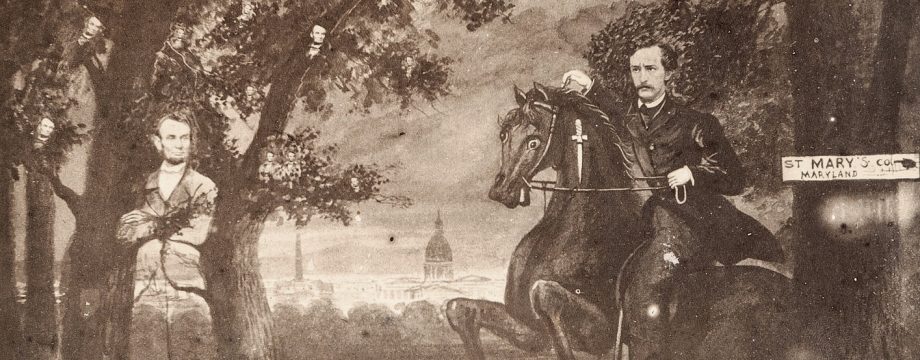



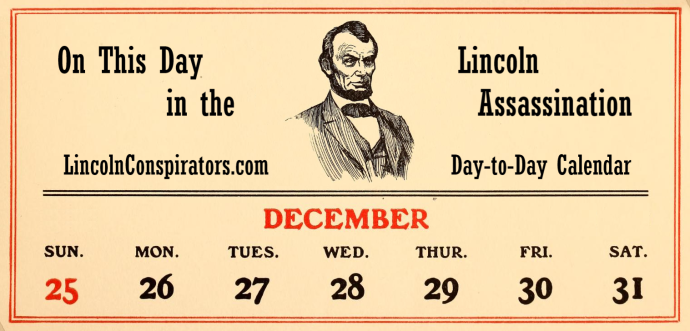
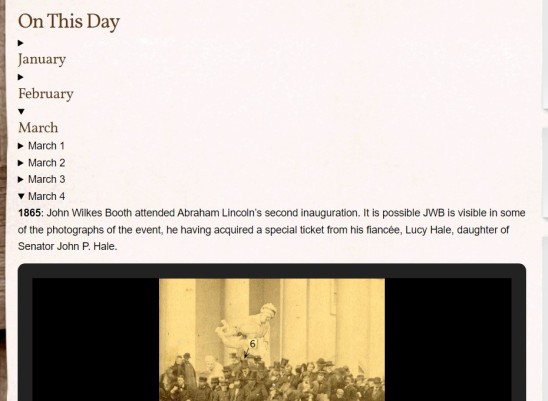













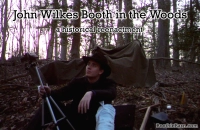
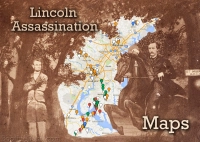

Recent Comments